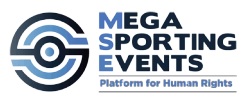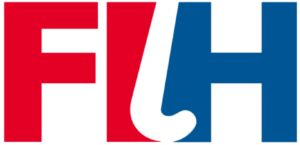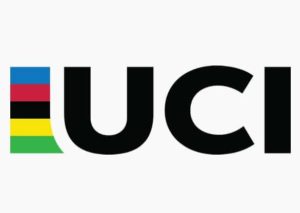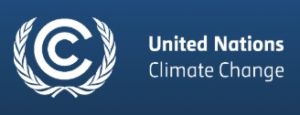
A total of 11 White Papers have been produced, clustered into four themes referring to key stakeholder groups. These White Papers aim to present the latest thinking, practice, and debate in relation to key human rights issues involved in the planning, construction, delivery, and legacy of MSEs. Each paper also considers the case for, and potential role of, an independent centre of expertise on MSEs and human rights.
Based on a case study from the Commonwealth Games, this paper explores the human rights duties and responsibilities of mega-sporting event (MSE) ‘Hosts’, defined as the event organising committee and their local and national government counterparts.
It reviews frameworks including UN Guiding Principles on Business and Human Rights (UN Guiding Principles) and Children’s Rights and Business Principles as appropriate roadmaps for implementation by the state and private sector actors engaged in MSE delivery and legacy realisation.
It highlights an emerging area of good practice using a case study from the Commonwealth Sports Movement, providing an overview of the steps taken to date, future plans, and lessons learned so far. Whilst at an early stage, it provides a potential direction of travel for other international federations thinking of undertaking a similar journey to integrate human rights considerations in event hosting.
It concludes by reflecting on what this case study implies for an initiative for collective action, and how the initiative with the Commonwealth Sports Movement can provide valuable lessons to inform the development of more universal roles and functions.
It concludes by focusing on the changing support requirements the Commonwealth Sports Movement is likely to need over time as buy-in and capacity in relation to human rights are built.




World Triathlon Sustainability Guidelines for event organisers
The science is clear.
What were once suppositions are now irrefutable facts.
Human activity has had an enormous negative impact on the Earth to the point that its regenerative capacities are overshot, threatening ecosystems and lives.
Like any other, the sports’ industry we belong to must share responsibility. It is our duty to minimise likely negative impacts and use our incredible potential to reach the masses and bring about positive change that can still make a difference.
This document is an invitation to our event organiser partners to engage in the journey of social, economic and environmental sustainability within and through the delivery of their event.
Some are already engaged, either on a voluntary basis or due to local legislation, and others have not yet started. Regardless of where you are on this journey, this
document offers a non-exhaustive list of actions to help keep you moving into the direction of sustainability.
It will also serve as a framework for a World Triathlon Sustainability certification system, which will recognise the commitments of Local Organising Committees (LOCs) to minimise their footprint.




The Mega-Sporting Event Lifecycle – Embedding Human Rights from Vision to Legacy
All organisations, including those in the world of sport, are responsible for respecting human rights. Through preventing potential negative human rights impacts linked to major events, and providing adequate remedies for abuses that do occur, all organisations involved in delivering a mega-sporting event can better harness sport’s potential for good.
The lifecycle for a mega-sporting event also serves as a microcosm for the whole range of business and human rights issues. With the large amount of public investment associated with these events, and their impacts on local communities, mega-sporting events should be delivered to exemplary standards in all respects – especially with regard for human rights.
The capacity of mega-sporting events to promote human rights is enhanced by the fact that sport is inherently tied to sporting values and fair play, and sport’s history of providing a stage for progressive interventions in issues such as community relations, discrimination, gender equality and personal and social development.
This guide presents the lifecycle of a mega-sporting event, with specific elements of good practice at each stage that those involved in hosting the event should integrate into their planning, delivery and legacy in order to ensure a rights-compliant event.
Download the English version of the guide
Download the French version of te guide
Download the Japanese version of the guide






The International Olympic Committee (IOC) has made great progress in promoting gender equality in terms of balancing the total number of athletes participating at the Games, offering leadership development, advocacy participating at the Games, offering leadership development, advocacy and awareness campaigns, and more recently appointing more women to leadership roles within the administration and governance. The priority of gender equality is reaffirmed in the Olympic Agenda 2020, Recommendation 11.
Meanwhile, many Olympic Movement stakeholders have also implemented significant gender equality initiatives so that girls and women are being given greater access and the opportunity to participate in sport.
However, there are still many challenges which need to be addressed, and the pace of progress is slow, particularly in this fast-paced environment.
To address those challenges, the IOC Executive Board (EB) launched the IOC Gender Equality.
Review Project on 16 March 2017 with a mandate to “push gender equality globally” with “action oriented recommendations for change.”
The adoption and implementation of these project recommendations will fulfil the IOC’s obligation under the Olympic Charter “to encourage and support the promotion of women in sport at all levels and in all structures.” It would also significantly contribute to the gender equality objectives of Goal 5 of the United Nations Sustainable Development Goals.
Promoting gender equality not only enhances the positive reputation of the IOC, it demonstrates corporate social responsibility to our commercial partners and it utilises the influence of the IOC to benefit society at large.
The positive impact of gender equality is well documented by social science research and business management studies.
Gender equality within the Olympic Movement creates opportunities for women to participate in public society and allows for women to contribute in roles of influence and decision-making responsibilities. It encourages physical activity and healthy lifestyles for women and girls. It encourages diversity of opinion, a key component of good governance and risk management.


FIH Quality Programme for Hockey turf
A new hockey field is a major investment and it is therefore important that it meets the expectations of hockey players, associations and clubs. To help ensure good quality fields are built for all levels of play, from elite level competition to community development, the FIH has developed an internationally recognised quality-assurance programme - the FIH Quality Programme for Hockey Turf. The programme was launched as part of an initiative of the Hockey Revolution - FIH's ten-year strategy for hockey.
Find out more about the programme by visiting the sections below :
- What can FIH Certification do for my field?
- Building a new field? How to integrate certification into your plans
- Find out who has FIH Certification
- Facility Guidance Resources
- Contact a FIH Accredited Test Institute
- Become a FIH Certified Manufacturer or Field Builder




Cycling for all side events UCI toolkit for event organisers
It is the UCI’s ambition to grow cycling in all forms around the world - be it for transport, recreation or competition. As part of this, we encourage and support our partners to host events that inspire the general public to cycle. The hosting of UCI sanctioned races provides an opportunity to organise side events that advocate and promote cycling beyond elite competitions. This guide provides advice on the development and hosting of Cycling for All side events, as well as practical examples of best practice.
Cycling for All side events may take various forms, depending on an organiser’s wider vision for their event.
This guide will provide case studies related to the following types of initiatives :
- Activity areas for children
- Travel by bike initiatives
- Multi-sport experience zones
- Race circuits open to the public
- Sustainability promotion and environmental campaigns
- Educational workshops
- Cycle skills training
- Closed street / car-free days
- Tourism and regional development campaigns
- Cycling festivals




UCI toolkit for national federations
Promoting and enhancing everyday cycling is a core pillar of the UCI’s strategy, striving to ensure that elite cycling acts as a catalyst to inspire even greater mass participation, and get many more people using bikes as part of their everyday lives. Be it working with cycling advocacy partners, championing local, regional, national or international cycling initiatives or supporting National Federations with their cycling promotion programmes, the UCI’s Cycling for All programme is meant to support the realisation of a more bike friendly world.
This toolkit provides practical advice and knowledge for National Federations seeking to develop their own child cycle training programmes.



The International Olympic Committee has published its Sustainability Report, tracking progress towards achieving its 18 sustainability objectives for 2020 across its three ‘spheres of responsibility’ – as an organisation, as the owner of the Olympic Games and as the leader of the Olympic Movement.
Here you can find the following elements of the IOC sustainability report







UNESCO is the United Nations Educational, Scientific and Cultural Organization. It seeks to build peace through international cooperation in Education, the Sciences and Culture. UNESCO's programmes contribute to the achievement of the Sustainable Development Goals defined in Agenda 2030, adopted by the UN General Assembly in 2015.
As a tool for aligning international and national policy in the fields of physical education, physical activity and sport with the United Nations 2030 Agenda, the Kazan Action Plan addresses the needs and objectives identified in the UN Action Plan on SDP. An integration of both these plans into a common framework is indispensable, in order to ensure enhanced coherence and synergies within the UN system, as well as a more effective mobilization of Member States and partners.
The Kazan Action Plan was adopted on 15 July 2017 by UNESCO’s Sixth International Conference of Ministers and Senior Officials Responsible for Physical Education and Sport, MINEPS VI. The text is the result of extensive consultations with UNESCO’s Member States, the Intergovernmental Committee for Physical Education and Sport (CIGEPS) and its Permanent Consultative Council, as well as other experts and practitioners in the field of physical duration, physical activity and sport policy.







UN Climate Change invites sports organizations and their stakeholders to join a new climate action for sport movement. This initiative aims at supporting and guiding sports actors in achieving global climate change goals.
Sports organizations can display climate leadership by engaging together in the climate neutrality journey. They can achieve this by taking responsibility for their climate footprint, which in turn will incentivize climate action beyond the sports sector, and therefore help global ambition step-up in the face of the threat posed by climate change.
Uniting behind a set of principles, sports organizations and their communities have created an initiative by collaborating in order to position their sector on the path of the low carbon economy that global leaders agreed on in Paris: Sports for Climate Action
UN Climate Change welcomes the leadership of the International Olympic Committee in contributing to key areas of action within this movement, and invites other governing bodies, sport federations, leagues and clubs, to join and jointly develop the climate action agenda in sports, by leading and supporting specific working groups and by bringing their expertise, tools and best practices into this framework.
As of June 2020, more than 130 sports federations, clubs and other stakeholders signed the Sports for Climate Action Framework. Click here to see the list of signatories.


